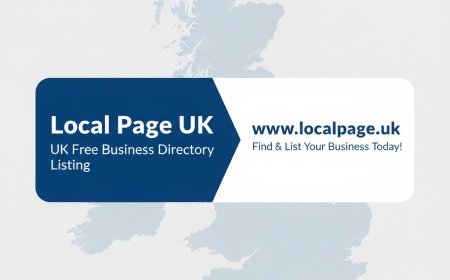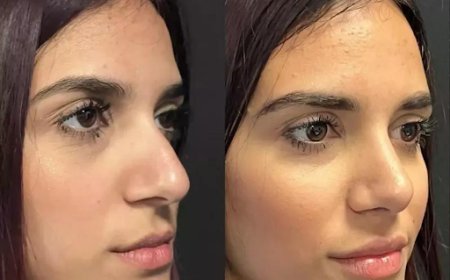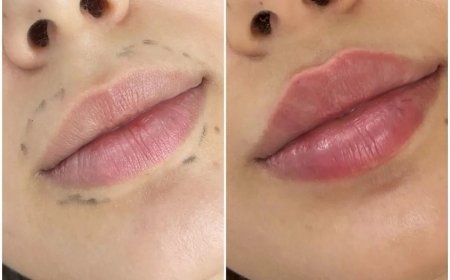Mental Health Isn’t a Luxury: Making Healing Accessible for All
Mental health care is a necessity, not a privilege. Learn why making healing accessible for all is vital in today’s world and how we can break the stigma and barriers together.

For too long, mental health has been treated like a luxurysomething reserved for those who can afford therapy, time off, or privacy. But the reality is clear: mental health isnt a luxury. Its a basic human need. Whether someone is navigating childhood trauma, substance abuse, anxiety, or generational grief, healing should never depend on a persons income, zip code, or social status.
We dont ask people to pay extra for clean air or clean waterwhy should healing be any different?
H2: The Deep Divide Who Gets to Heal?
Ive stood in school auditoriums and community centers where children ask questions with tears in their eyes. Ive spoken in prisons and halfway houses where healing seems like a distant fantasy. Over the years, one thing has become painfully clear: there is a mental health access gap that mirrors the very inequalities our society struggles withrace, income, education, and environment.
This divide means:
-
Many communities of color lack affordable therapists who understand cultural trauma
-
Rural populations may not have any local mental health services at all
-
Individuals with past legal issues or substance abuse histories are often dismissed by the system
The message, whether intentional or not, is clear: some people deserve healing, and others must cope.
H2: Why Accessibility Matters More Than Ever
The pandemic pulled back the curtain on how fragile our collective mental well-being really is. Isolation, grief, economic instability, and health anxiety impacted every age group. Yet, even in this moment of global struggle, the access gap widened.
Heres why accessible mental health services matter:
-
Early intervention prevents lifelong trauma
-
Affordable care reduces long-term public health costs
-
Culturally competent support rebuilds trust in systems
-
Community-based healing helps break cycles of generational pain
Healing is not just about individual therapyits about equipping communities to recognize, respond to, and recover from emotional wounds.
H2: Common Barriers to Mental Health Access
Lets break down some of the most persistent obstacles standing in the way of equitable healing.
H3: Financial Limitations
The average therapy session in the U.S. can cost between $100 to $250. For many families, thats more than groceries for a week. And while insurance can help, not everyone has coverageor providers who accept it.
H3: Stigma and Silence
In many cultures and families, mental health is still taboo. Speaking up might be seen as weakness or even betrayal. That stigma silences survivors of trauma, abuse, and addictionleaving them to carry their pain in secret.
H3: Systemic Racism
Studies show that Black and Brown individuals are less likely to receive mental health careand more likely to receive lower-quality care when they do. The result? Mistrust, misdiagnoses, and missed opportunities for healing.
H3: Geographic Isolation
In rural areas, a person might need to drive hours just to see a counselor. Lack of public transportation, internet access, or mental health infrastructure makes seeking help nearly impossible.
H2: Community-Based Solutions That Work
We cant wait for top-down policy reform alone. Real change begins at the community level.
H3: Trauma-Informed Schools
Educators trained to recognize the signs of trauma can intervene earlyoffering students support before a crisis hits. Schools can also partner with local counselors to offer on-site therapy, especially in underserved areas.
H3: Mental Health Speakers and Advocates
Sometimes, healing begins with a story. A survivor sharing their journey out loud can crack open doors for those whove suffered in silence. Mental health speakers play a vital role in reducing stigma and raising awarenessespecially when they speak from lived experience.
H3: Peer-Led Support Groups
Not every conversation needs to start with a professional. Peer groups led by individuals who have been there offer empathy, relatability, and real-world strategies that professional settings sometimes miss.
H3: Mobile and Digital Clinics
In areas lacking in-person services, mobile units and telehealth can bridge the gap. A smartphone cant solve everythingbut it can provide connection, screening, and sometimes even counseling to those who would otherwise go without.
H2: Lived Experience as a Form of Expertise
Heres something we dont talk about enough: people who have survived trauma, addiction, abuse, incarceration, or homelessness often carry the most valuable expertise in healing. Their stories, strategies, and resilience are roadmaps for others who are still struggling.
This is where EEAT truly livesExperience is just as powerful as academic credentials. Authoritativeness can come from community leadership, not just clinical degrees. Trustworthiness is earned by showing up, again and again, for the people who need it most.
This is why those who speak from experiencewhove walked the long, hard road of recoverymust be at the center of mental health advocacy.
H2: The Role of Mental Health Speakers in Bridging the Gap
Mental health speakers do more than inspire. They educate. They empower. They challenge systems that ignore suffering and normalize silence. Whether standing in a school gymnasium or addressing corporate leaders, their message is clear: healing is not optionalits essential.
Speakers like Tonier Cain dont just talk about trauma; they transform the conversation around it. With a lived understanding of the intersection between mental health and systemic oppression, their presence alone is a catalyst for change.
H2: Healing as a Human Right
Lets say it loudly: Mental health is a human right. No one should have to choose between buying food and getting help. No one should be punished for showing signs of trauma. And no one should be made to feel unworthy of healing.
We must dismantle the systems that gatekeep care. We must amplify the voices of those who have been silenced. And most of all, we must commitindividually and collectivelyto making healing a part of everyday life, not a far-off luxury.
Conclusion: Healing Is Possible, and It Starts With Access
If we want to create a world where mental health care is no longer seen as an indulgence, we have to rethink what access looks like. That means more than just adding providersit means creating spaces where people feel safe, seen, and supported.
Organizations, schools, and community leaders must work together to ensure that healing isnt reserved for the fewbut extended to the many.
At TonierCain.com, we believe that mental health education, trauma recovery, and community empowerment should be available to everyone. Our work is grounded in lived experience, expert knowledge, and an unwavering belief that healing is possiblefor all.
Lets make it happen, together.








































